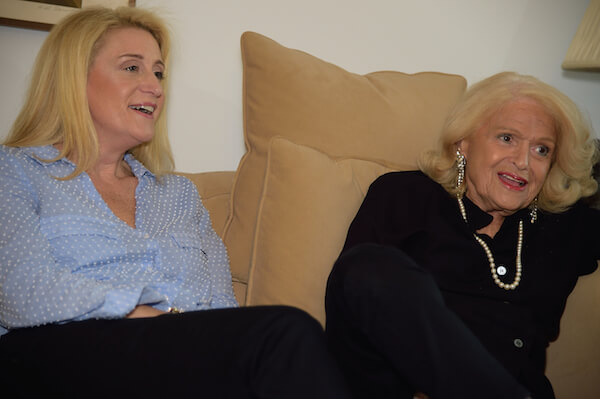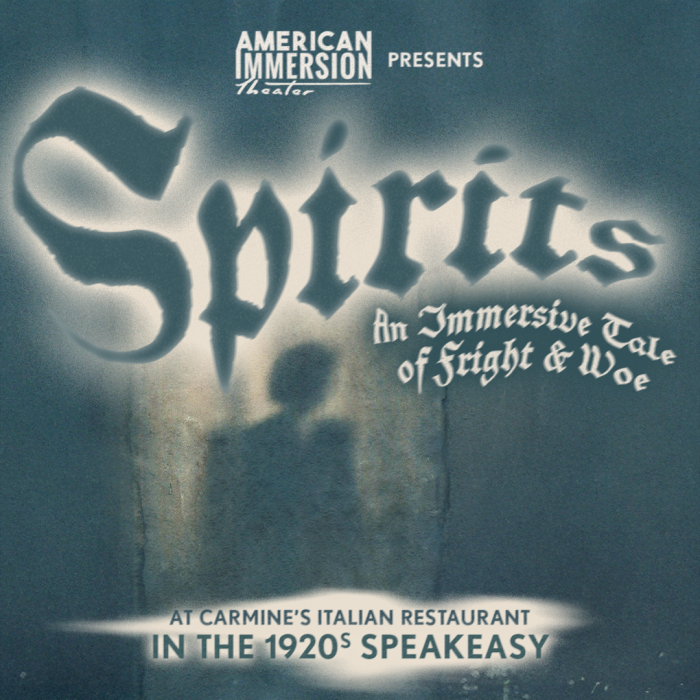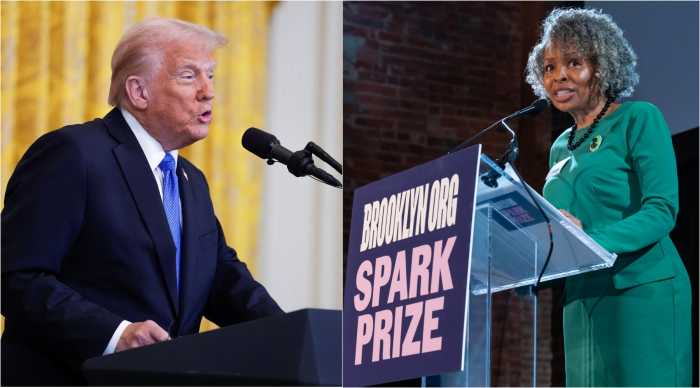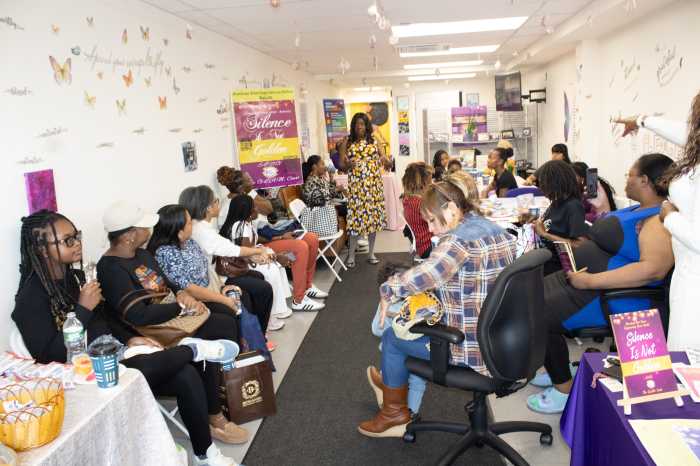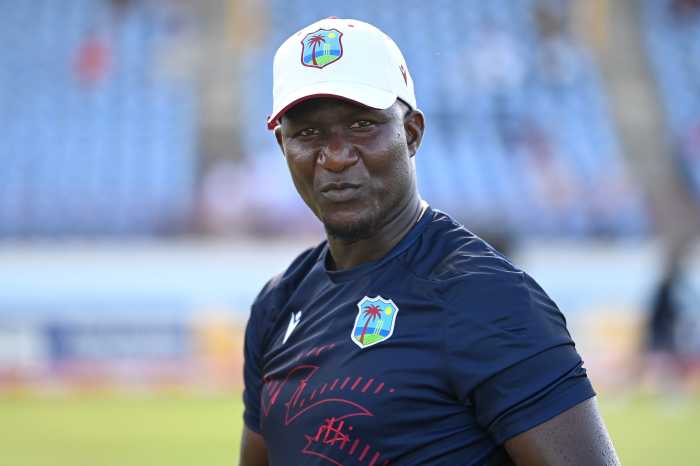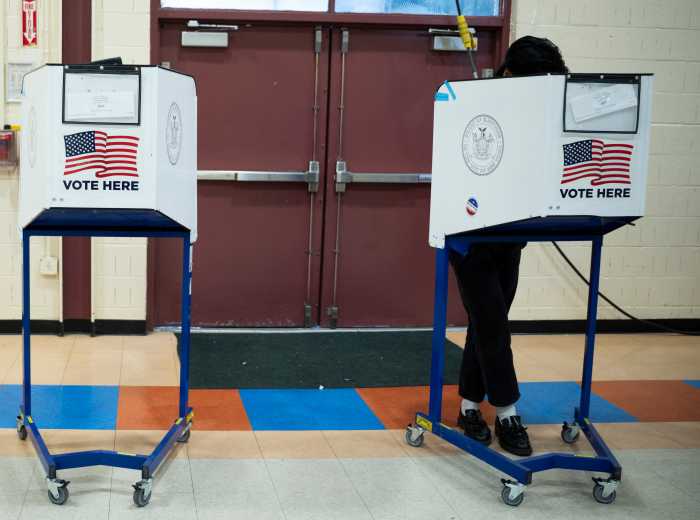A soldier in captivity in contingent protesting Bradley Manning's prosecution. | DUNCAN OSBORNE
Accra Zuberi was cheering as the Bradley Pride Coalition went by on Fifth Avenue during New York City’s annual Pride March.
“I’d much rather support somebody who is telling me what’s going on over somebody who won’t tell me what’s going on,” the 30-year-old told Gay City News.
While the 44th annual march featured the usual assortment of politicians, community groups, and commercial floats ranging from the pedestrian to the fabulous, this coalition aimed to tell the hundreds of thousands who joined or viewed the June 30 event about the plight of Bradley Manning, the 25-year-old US Army private who gave hundreds of thousands of government records to the Wikileaks website and is now facing serious charges, including aiding the enemy and espionage, in a military trial.
June 30 Pride March exhibits typical exuberance, perhaps not the euphoria of 2011's NYS marriage equality victory
Here, the soldier walks free.
“We want to show the world that the LGBT community is behind Bradley Manning now that he is on trial,” said Elias Holtz, a member of the Freedom Socialist Party and a coalition organizer.
Manning, who has been described as gay and transgender, could face life in prison if convicted. The records revealed the US government at its best and worst, though most of the records show the more mundane daily work of the government.
One video, titled “Collateral Murder” by Wikileaks, shows US soldiers in a helicopter firing on and killing a group Iraqi civilians they incorrectly believed were armed. Two of the civilians were journalists and their cameras were mistaken for weapons.
A 2005 document included in Pentagon records shows that the agency was aware of the organized killing of gay Iraqis in that country more than 15 months before those murders were first reported by Doug Ireland in Gay City News.
A rainbow array of balloons provides an arch for the parade. | DONNA ACETO
US Department of State cables showed that agency quickly responding to the “kill the gays” legislation that was introduced in Uganda’s parliament in 2008 and the Ugandan government quickly capitulating to pressure from foreign governments in 2009 and killing the legislation.
Ultimately, Manning’s disclosures were a strike at a US government that has grown increasingly powerful and opaque since the attacks of September 2001.
“We’re in an era when the government has grown more and more secret and our lives are more and more transparent to the government,” Holtz said.
The coalition was endorsed by roughly 20 groups and about 100 people marched, including a 20-piece band. The central feature was an actor portraying Manning who was held in a rolling prison and guarded by four men in camouflage. Every few blocks the prison would be split apart and Manning would leap forward to cheers on Fifth Avenue as a banner reading “Free Bradley Manning” unscrolled behind him. He would then be re-imprisoned by the four guards as the contingent members booed.
Among the mayoral candidates, City Council Speaker Christine Quinn had the largest contingent of supporters marching with her. | DONNA ACETO
There were similar contingents in pride marches in Chicago, Seattle, and San Francisco. Manning was named a grand marshal of the San Francisco Pride march earlier this year by a vote of former grand marshals, but the SF Pride Board quickly rescinded that honor fearing controversy.
As always, some of those watching were cheering simply because they cheered for every group that went by. Others knew of Manning and were supporting his cause, according to brief interviews Gay City News conducted with half-dozen onlookers.
This year’s march was threatened by rain clouds and expected thunderstorms, but a light rain in the middle of the afternoon was the worst weather of the day. That rain did not dampen the spirit of what is always an exuberant crowd that lines Fifth Avenue in Manhattan.
Former Comptroller Bill Thompson, the 2009 Democratic mayoral nominee and a candidate again this year, marches with his supporters. | DONNA ACETO
With 2013 being an election year, candidates and politicians were out in full force in the march though the definition of full force varied.
City Council Speaker Christine Quinn, an out lesbian who represents Chelsea and the West Village, marched with her spouse, Kim Catullo, followed by an army of volunteers that looked like it numbered in the several hundreds. Quinn is seeking the Democratic nomination for mayor.
The other contenders for the Democratic nomination, John Liu, Bill Thompson, Bill de Blasio, Anthony Weiner, and Sal Albanese, had contingents ranging from smaller to substantial.
Republican mayoral hopeful Joe Lhota fields a very small contingent for Pride. | DUNCAN OSBORNE
Joe Lhota, who is seeking the Republican nomination for mayor, marched behind the Log Cabin Republicans, the gay Republican group, with a campaign aide. It is not known if John Catsimitidis, also a contender for the GOP nod, marched.
While this year’s march came just four days after a US Supreme Court decision that struck down the section of the Defense of Marriage Act (DOMA) that barred federal recognition of same-sex marriages and a second that allowed gay and lesbian couples to wed in California, the crowd seemed smaller and more subdued than the exultant mob that lined Fifth Avenue in 2011 right after same-sex marriage was enacted in New York.
Grand marshals Earl Fowlkes, Edie Windsor, and Harry Belafonte. | DONNA ACETO
Edie Windsor, the plaintiff in the DOMA lawsuit, was a grand marshal this year along with Harry Belafonte, the singer who was and continues to be a leading voice for civil rights, and Earl Fowlkes, the president of the Washington, DC-based Center for Black Equity, a social justice organization.












